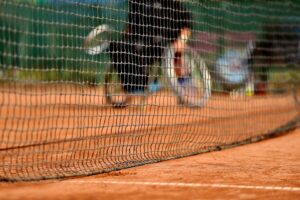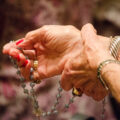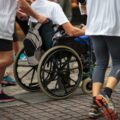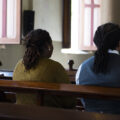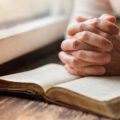Do religions objectify people with disabilities? Part 2: in practice
Do religions objectify people with disabilities? Part 2: in practice
In religions and societies, people with disabilities have equally suffered from idealisation and rejection. Today, are religious communities doing a better job of addressing them as humans?
The 2021 Tokyo Paralympic Games were the most successful in history. The media coverage and viewership surpassed what had been previously achieved. Athletes have also used social media “to self-represent and (re-)claim the narrative around disability.”[1] Such progress in inclusion and visibility is historical.
On the contrary, not making space for a person’s needs, wants, wishes, and dreams, “talking over and about” them as if they were things, is objectifying.[2] Religions have long struggled with idealisation and rejection of physical and mental disabilities. However, we have seen in a previous article that theologians are increasingly becoming aware of disability-related concerns and affirm that deficiency is an integral part of being human.[3]
Despite the recent evolution of theories around disabilities, practices currently remain rather steady.[4] Do religions successfully address people with disabilities in a dignifying way?
Numerous protective rules
All three monotheisms (Judaism, Christianity, and Islam) took account of individual capacities very early on. For instance, common ancient rules command not to provide a wrong direction to a blind person.[5]
Islam in particular has a tradition of adapting religious duties to the health and abilities of believers. What is uneasy is not mandatory, because no disability should cause embarrassment.[6] As a consequence, blind people are exempted from the duties that demand vision and people with a limp are exempted from the duties that necessitate walking.[7] Further, Islam prohibits any behaviour that could make people with disabilities uncomfortable. Among other things, Ibn Abbâs,[8] a cousin of the Prophet who happened to be blind, reported that Muhammad commanded not to stare.[9]
For its part, the Catholic Church insists on the common humanity of all people, disabled and non-disabled. The Social Doctrine of the Church calls it “radically unworthy of man” to discriminate between humans. It states that “[g]reat attention must be paid not only to the physical and psychological work conditions, to a just wage, to the possibility of promotion and the elimination of obstacles, but also to the affective and sexual dimensions of persons with disabilities.”[10] Besides, affirming people with variant mental and physical capabilities, especially children with little learning and socialising skills, is at the core of the Catholic claimed identity.
Lacking normative guidelines
These protective rules prevent potential harm to people with disabilities. But are they enough to compensate for centuries-long objectification? Catholic theologian of disability, Talitha Cooreman-Guittin, provides reasons to doubt. At least within the Catholic approach to disabilities, she notices two major problems.[11]
First of all, there is no systematic doctrine or set of policies for including people with disabilities. Examples are numerous. In the absence of a reference text defining cognitive impairment, priests have a responsibility to decide arbitrarily who makes “sufficient use of reason” to receive sacraments and participate in community life. The constant attention to people with disabilities in the Catholic Church has not yet secured their non-objectification.
Second of all, every existing text is written from the ‘us’ point of view, about ‘them’ who have a disability. This ‘them’ is also regularly referred to as ‘the smallest of brothers’ or ‘the weakest of brothers’. Yet, not all disabilities are the same, and not all disabilities are completely debilitating. Most people with a disability are able to reflect, communicate, and participate in making guidelines on disability.[12] This ‘us vs them’ mindset appears ableist[13] and objectifying.
Nonetheless, Cooreman-Guittin trusts that Pope Francis can make a change, calling for clarity and inclusion. On the International Day of People With Disabilities 2020, Francis stated that people with disabilities should be welcomed to participate in the life of the church, arguing that they share priestly ministry with all who are baptised.[14]
The stories and counselling of those with disabilities
Words matter. Such religious authorities who talk about disability should be chosen with care for precision and humanity.[15] However, the objectification also comes from the suppression of words spoken by those who experience disability.
In religions, the vast majority of those in positions of authority were (and still are) able-bodied. They have, logically, elaborated representations of the divine that matched their experiences as able-bodied persons. The experiences of people with disabilities were not taken into account when developing discourses about a God that therefore appeared ‘perfect, self-sufficient and sovereign’. On the contrary, supporting and listening to the voices of those with disabilities, confronting current theology and policies with their own experiences of faith and humanness, religious leaders become able to understand that ‘vulnerability and deficiency’ may also be divine characteristics.[16]
Emerging in the 1960s alongside gender studies, women studies, and ethnic studies, disability studies have claimed that those who lived with one or more disabilities were the first experts on disability. Testimonies of caregivers are also valuable, although they would not be considered expertise. The co-production of knowledge by people with and without disabilities is increasing.[17] For now, religions remain rather unaware of the necessity to gather, listen to, and rely on the voices of those with disabilities.[18] Like women, transgender people, and non-white people of faith, people with disabilities usually remain the objects in the discourses others hold about them. In order to fully respect the humanity of people with disabilities, religious leaders and members need to recognise that those concerned are the subjects of their own stories.
Ability is not the default
Much of the data gathered here relates to the Catholic Church, as it currently is the denomination that is most vocal about disability. Still, it does not relay the speech of those who live with it. Therefore, all religions seem to be challenged when it comes to entering into a dialogue, “accepting to receive and not only give.”[19] As disability studies suggest, great improvements could come from including people with disabilities in leading roles.
Believers with disabilities do not embody ‘otherness’ as much as they carry stories of marginalisation and faith. These stories are yet to be collected and heard, like that of Amélie, a young deaf woman that Cooreman-Guittin quotes. As someone told her that she would probably be able to hear in the hereafter, Amélie replied: “I do not think so, but I believe that in the hereafter, you all will use sign language.”[20]
Want to read more about similar topics? Go to the EARS Dashboard and get free weekly updates.
Sources
[1] The media coverage of the Tokyo 2021 Paralympic Games: Visibility, progress and politics – Olympic Analysis
[2] Disabled Children Aren’t Burdens — or Angels
[3] Talitha Cooreman-Guittin, Catéchèse et théologies du handicap : ouvrir des chemins d’amitié au-delà des barrières de la déficience, 2020
[4] Talitha Cooreman-Guittin, Catéchèse et théologies du handicap : ouvrir des chemins d’amitié au-delà des barrières de la déficience, 2020
[5] Deuteronomy 27:18 NIV – “Cursed is anyone who leads the blind
[6] Quel est le point de vue de la religion sur les personnes handicapées ? – Islamweb
[7] Verse (48:17) – English Translation
[9] Sunan Ibn Majah Hadith 3543 in Urdu & English – Medicine Hadith
[10] Compendium of the Social Doctrine of the Church, “The Political Community.
[11] Talitha Cooreman-Guittin, Catéchèse et théologies du handicap : ouvrir des chemins d’amitié au-delà des barrières de la déficience, 2020, p31-46
[12] Hearing and motor deficiencies being the most common disabilities. See here:Les chiffres du handicap par nature de handicap
[14] “Les personnes handicapées demandent à devenir des sujets actifs de la pastorale”, déclare le pape François
[15] How to Be Human When Talking About Disability and Health
[16] Talitha Cooreman-Guittin, Catéchèse et théologies du handicap : ouvrir des chemins d’amitié au-delà des barrières de la déficience, 2020, p75-76
[17] Gary L. Albrecht, Jean-François Ravaud et Henri-Jacques Stiker, L’émergence des disability studies : état des lieux et perspectives, Sciences sociales et santé, 2001
[18] Talitha Cooreman-Guittin, Catéchèse et théologies du handicap : ouvrir des chemins d’amitié au-delà des barrières de la déficience, 2020, p8
[19] Yves Le Chapelier, Murs, Alliance 75-76, mai-août 1991, p. 3
[20] Talitha Cooreman-Guittin, Catéchèse et théologies du handicap : ouvrir des chemins d’amitié au-delà des barrières de la déficience, 2020, p101
